David Stairs
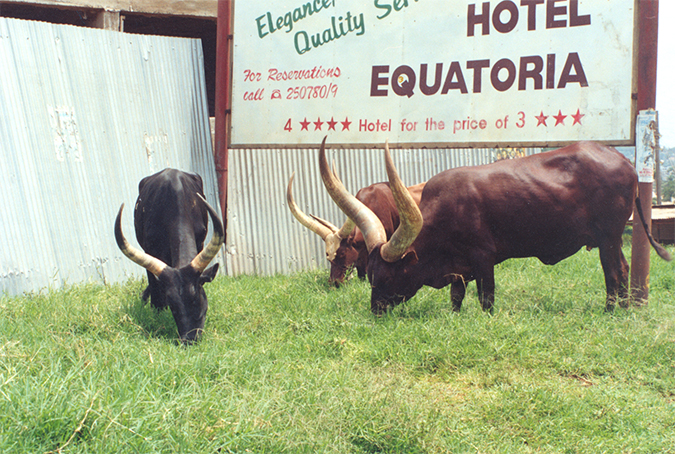
Ankole cattle grazing on the outskirts of Kampala, Uganda
First of all, this story has nothing to do with cattle, but everything to do with wealth and its distribution. In December 2012 I talked a group of students into helping me attempt to raise money online for an African NGO run by an amazing friend of mine. It wasn’t an easy sell. These were seniors, and they had their own idea about how to design their thesis exhibition. But I was tenacious, I kept coming back at them, and it didn’t hurt that the professionals they spoke with at a regional design studio told them they’d be foolish to pass up the opportunity.
Raising money at any time is a challenge. People are under siege from fundraisers 24/7. And, although I did not know it at the time, crowd sourcing money online without a gadget to shill is harder than selling ice in Michigan in the dead of winter. Kickstarter won’t even talk to charities, and at Indiegogo we found our pitch played primarily to our friends. But most of the students got enthusiastically behind it, worked real hard promoting the Fhope Community Resource Center, and mounted a very nice exhibition about their efforts. We only reached 25% of our $15,000 goal, but $3800 is nothing to sneer at.

Mr. James Lutwama, teacher, gardner, philanthropist par excellance
What happened next could not have been foreseen. In autumn of 2013 our African contact, the charity’s founder, had a serious accident. In most places a 52 year old man is not considered old but in Uganda, where the average life expectancy at birth is about 54, James Lutwama is called “Jjawwabaana,” which means grandfather in the Lugandan tongue. James needed surgery and, from what I knew about Ugandan healthcare, it seemed very possible that his organization might be left without its leader. One of the Board members of Designers Without Borders who knew James wanted to forward cash assistance for the surgery. Again, easier said than done. One failed bank transfer later, we finally got some money to him through an intermediary. Happily, the surgery was a success. Once James was on the mend, our discussion turned to what we could feasibly do with the funds my students and I had raised. We could not move ahead with the original plan to build a community center; $3800 just wasn’t enough money. There was a possibility that we might purchase a small parcel of land along the one of the busy roads leading into Kampala where James could erect a stand to market the produce he grows to support Fhope. But we needed to act quickly. The Ugandan currency is in freefall. In the last eight years its value to the dollar has declined from 2000/1 to 3000/1, and foreign speculators were using this weakness to scoop up vast parcels of land.

Raising fruits and vegetables to support social causes
I went to the bank and withdrew the Indiegogo funds from the DWB account and took them to the nearest Western Union provider. This local branch had never tried to wire $3800 overseas before, so it took them a while to figure it all out. Eventually, a tentative transmission was sent, the final hurdle being a telephone interview I had to have with a WU official. Did I know the recipient, I was asked. “Yes.” Had I wired him money before? “Well, yes, in a manner.” How did I communicate with the recipient? “By email.” How long since I had seen the recipient in person? “Eight years.” That was a bridge too far. They cancelled the transaction. It was for my own from Uganda. That and the fact that James’ small local charity did not make it onto their international lists. I told James I would think about it a bit, see if I could come up with another plan. Time was passing where time was of the essence. It was already two years since the Indiegogo project wrapped, and I was still holding the money!
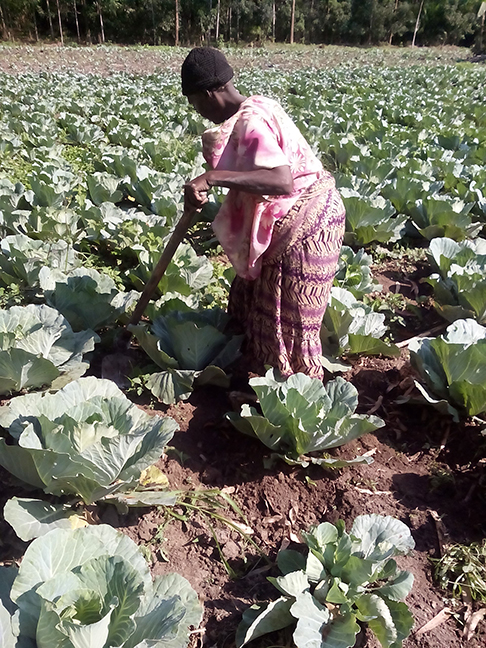
Cabbage crop at Arcadia Valley 2015
Eventually, I contacted the same friend who had helped me secure James’ surgery in 2014, and asked him if he would consider one more favor. I’d introduced him to James years before, and he was willing to assist me, so long as we did not run it through his business books. The folks at my credit union were helpful. What was the purpose of the transaction?— post 911 security regulations required them to ask— “A social improvement program,” I said. It would not take more than 14 days they replied. “Two weeks? Seriously? For an e-transfer of funds?” I told my friend not to hold his breath waiting for the money— I didn’t want to be responsible for his untimely death. In Africa cattle have long been synonymous with wealth. Imagine my relief when I finally received my friend’s coded message about 10 days later: “I am richer by 3842 cows. Is this all the herd you had?” To which James responded, “I can find pasture for those cows, but better make sure there are a few bulls among them, or we won’t have any heifers.” Ah, that Ugandan sense of humor in the face of almost inevitable failure. I sure do miss it. Thanks again to everyone who made those 2013 donations. Sometimes it just takes awhile to float a herd across the Atlantic.
David Stairs is the founding editor of Design-Altruism-Project.

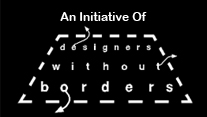



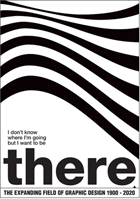
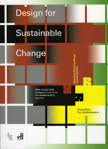
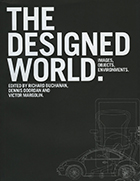
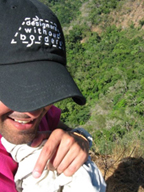


Leave a Reply
You must be logged in to post a comment.